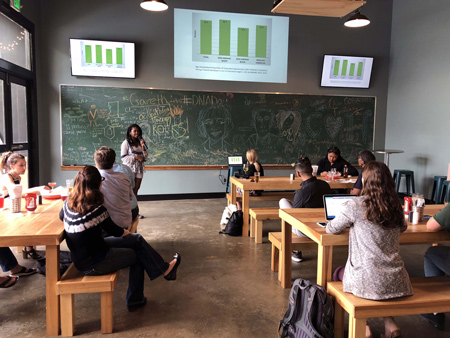Hypertension – also known as high blood pressure – is a growing problem. Recent statistics indicate that 46 percent of American adults (or more than 100 million individuals) suffer from hypertension. In hypertension, the arteries become smaller and tighter. As a result, the heart has to work harder to push blood through a smaller space. If left untreated, hypertension causes physical damage to the arteries, heart and the rest of the body. It can ultimately lead to stroke or heart attack.
 African Americans have the highest risk of developing hypertension compared to other American populations. Among African Americans, hypertension tends to develop earlier and is more severe. The causes of these ethnic differences are complex and multifaceted – research has shown that a variety of genetic, environmental and biological factors contributes to the problem. A number of medications have been developed to lower blood pressure, however, despite the new treatments, African Americans continue to have the most difficult time controlling their high blood pressure.
African Americans have the highest risk of developing hypertension compared to other American populations. Among African Americans, hypertension tends to develop earlier and is more severe. The causes of these ethnic differences are complex and multifaceted – research has shown that a variety of genetic, environmental and biological factors contributes to the problem. A number of medications have been developed to lower blood pressure, however, despite the new treatments, African Americans continue to have the most difficult time controlling their high blood pressure.
Bre` Minniefield, a doctoral student and researcher at UAB in the Graduate Biomedical Science program, has focused her research on understanding the response to hypertension medication among African Americans.
“Only 45 percent of African Americans suffering from hypertension have their symptoms under control,” Minniefield said. “I wondered ‘Why does medication work for some, but not others? And are there genetic differences linked to how African Americans respond to high blood pressure medication?’”
To answer this question, Minniefield is using a subset of data collected from a multi-site, longitudinal study called ALLHAT. ALLHAT began in 1994 and lasted eight years. It was the largest trial of hypertension medications. While previous studies on hypertension often under-represented the African American population, ALLHAT recruited a large portion of African American participants. This allowed researchers to look specifically at African American individuals with hypertension.
One of the hypertension treatments tested in ALLHAT was thiazide diuretics, or water pills. Water pills are one of the most commonly prescribed medications to treat hypertension; the pills work by helping the body to expel excess sodium and water, which decreases high blood pressure. A subset of participants enrolled in the 24-month ALLHAT study took water pills.
 Interestingly, African Americans seemed to respond differently to water pills compared to other groups in the study. Specifically, water pills were less effective at lowering blood pressure in African Americans. While some African American participants showed a slight decrease in blood pressure, other participants’ blood pressure stayed the same or increased. Additionally, the African American group had high blood sugar levels after taking water pills, which can lead to type II diabetes.
Interestingly, African Americans seemed to respond differently to water pills compared to other groups in the study. Specifically, water pills were less effective at lowering blood pressure in African Americans. While some African American participants showed a slight decrease in blood pressure, other participants’ blood pressure stayed the same or increased. Additionally, the African American group had high blood sugar levels after taking water pills, which can lead to type II diabetes.
“The lack of blood pressure response was only see in African Americans to a significant degree,” Minniefield said. “However, the blood sugar response was seen in everyone, but within the African American group, the difference was extremely large. So that is very interesting and intriguing and is what my research is trying to develop.”
Minniefield is specifically interested in understanding if there are genetic links to this observed medication response in African Americans. Minniefield is using bioinformatics techniques to answer her research questions.
Bioinformatics involves using computer technology and statistics to analyze and interpret datasets of biological information, such as genomic sequences. Minniefield is specifically investigating potential genetic variants within the mitochondrial genome, to see if there is a relation to the medication response in African Americans.
While most DNA is located within the cell nucleus, a small portion of DNA can be found within the mitochondria. While people inherit nuclear DNA from both parents, mitochondrial DNA is inherited from the mother only. Previous studies have suggested that mutations in the mitochondrial genome contribute to the development of hypertension. Minniefield plans to expand on this research to understand whether mitochondrial genetic variants relate to the different medication response in hypertensive African Americans. She is interested in a particular mitochondrial DNA variant (cytochrome b), which has been shown to be associated with drug response.
“The purpose of my research is to provide inclusive research for underrepresented or minority populations and to better understand the observed medication response in hypertensive African Americans,” Minniefield said.
